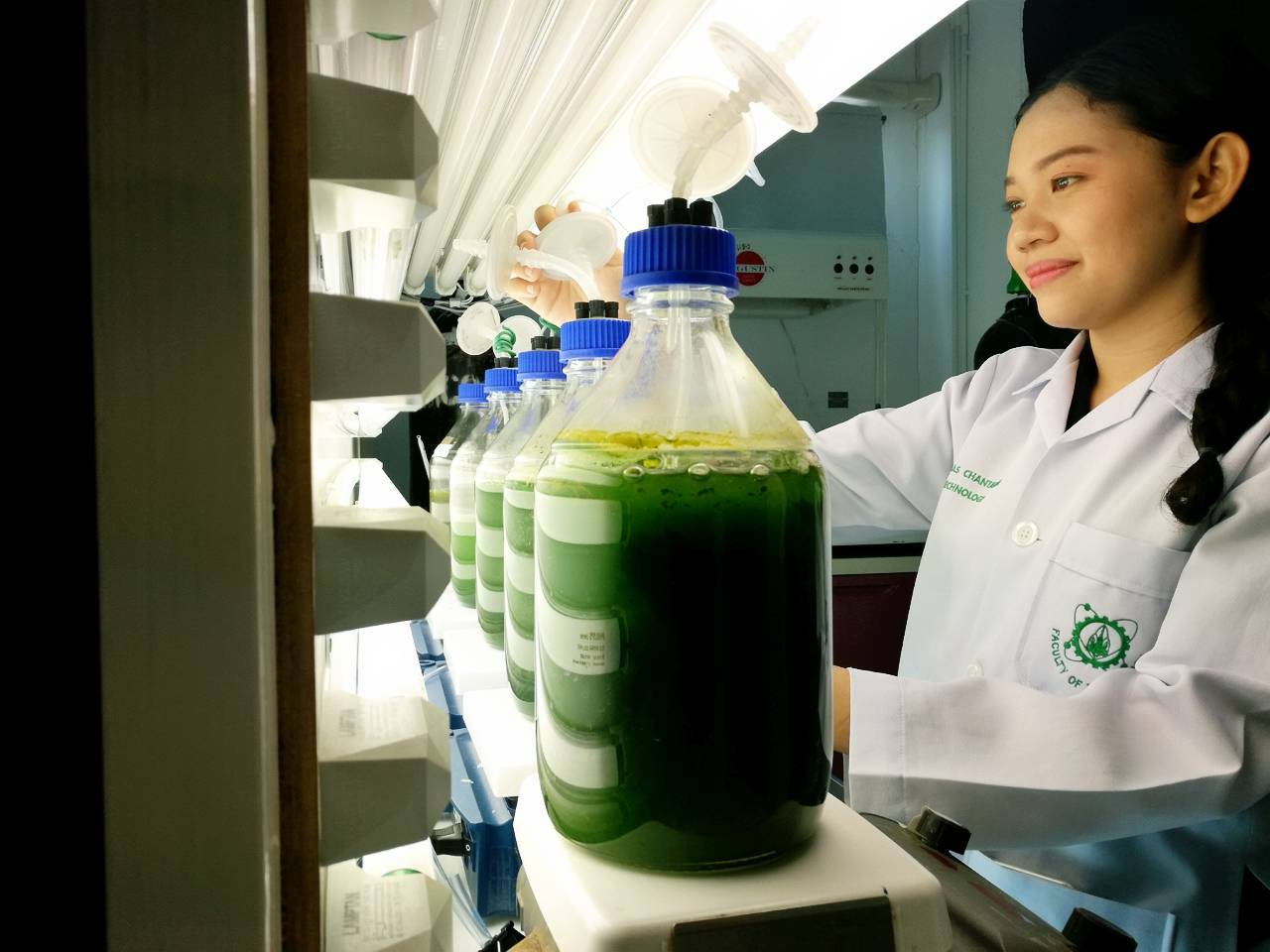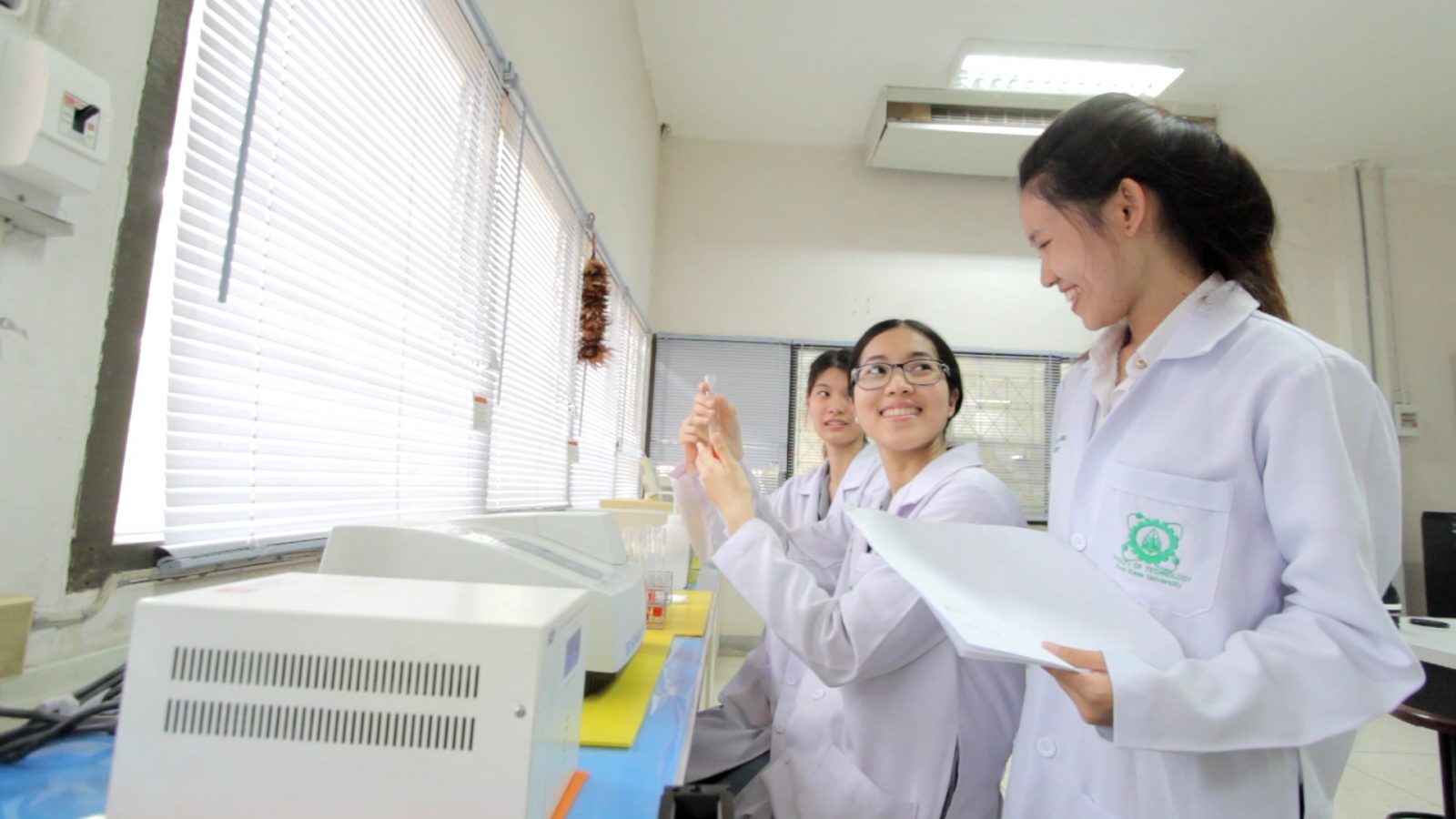The field of Biotechnology is an applied science that focuses on utilizing microorganisms, plants, and animals by applying fundamental scientific knowledge and engineering principles to develop and improve products or enhance processes for transforming biological materials into valuable products. These advancements contribute to the benefit of society and the nation. Biotechnology is a discipline with a broad scope.
Philosophy and Importance of the Program
The Bachelor of Science Program in Biotechnology (Revised Curriculum, 2017) aims to produce graduates with comprehensive knowledge and expertise in biotechnology. The program emphasizes the development of skills and practical experience through learning and training, preparing students for professional work, problem-solving, and advancing knowledge in the field of biotechnology. Graduates are expected to possess strong moral and ethical principles, adhere to academic and professional standards, and demonstrate an understanding of the dynamic and diverse global and social contexts. The program strives to cultivate desirable graduates who meet the needs of society and the current job market.


Philosophy and Importance of the Program
The Bachelor of Science Program in Biotechnology (Revised Curriculum, 2017) aims to produce graduates with the following qualities:
- Possess knowledge and learning experience, enabling them to perform effectively in the field of biotechnology.
- Demonstrate analytical and creative thinking skills, utilizing knowledge and experience in biotechnology to solve work-related problems.
- Develop competencies in communication, research analysis, computer and information technology, and modern management.
- Exhibit moral and ethical principles, academic and professional integrity, and possess essential social skills for future work and life.
- Be capable of serving local and societal needs responsibly, with initiative, creativity, and a commitment to continuous self-improvement.
- Have a broad worldview and sufficient knowledge to pursue higher education both domestically and internationally.
The field of Biotechnology offers the following degree programs:
Bachelor’s Degree Program: Bachelor of Science (B.Sc.) in Biotechnology
Master’s Degree Program: Master of Science (M.Sc.) in Biotechnology
Doctoral Degree Program: Doctor of Philosophy (Ph.D.) in Biotechnology
International Master’s Degree Program: Master of Science (M.Sc.) in Industrial Biotechnology (International Program)
The field of Biotechnology offers the following degree programs:
Bachelor of Science Program in Biotechnology consists of two plans:
1.Internship and Biotechnology Project Plan: This study plan requires students to complete a minimum of 133 credits, including various courses and a biotechnology project.
2. Co-operative Education Plan: This study plan requires students to complete a minimum of 127 credits of coursework and at least 6 credits of co-operative education. The co-op program involves full-time work in an organization for one academic term.
Career Opportunities After Graduation
Graduates of the program possess the knowledge and skills to work in various sectors, including government agencies, private industries, self-employment, or starting their own businesses in the field of biotechnology. They can pursue diverse roles such as:
- Scientists or researchers in research institutes (e.g., Genetic Engineering and Biotechnology Centers, ministries, or departments).
- Lecturers in educational institutions or private sectors.
- Professionals in various roles such as sales, production, research and development, or quality control in industries related to food, beverages, chemicals, or scientific equipment and product distribution companies.
Types of Work After Graduation
- Government Agencies:
- Higher education institutions.
- Research and development institutes under the Ministry of Science, Technology, and Environment.
- Ministry of Industry, etc.
- Private Sector:
- Bioproduct manufacturing industries, such as organic acid production, ethanol, sugar, paper pulp, food and beverage production, animal feed, pharmaceuticals, and plant extracts, etc.

